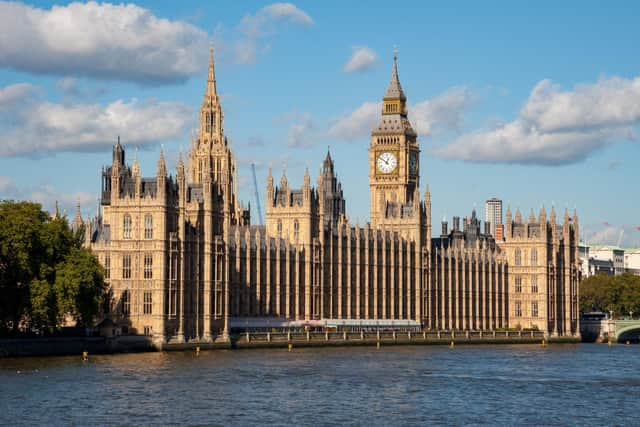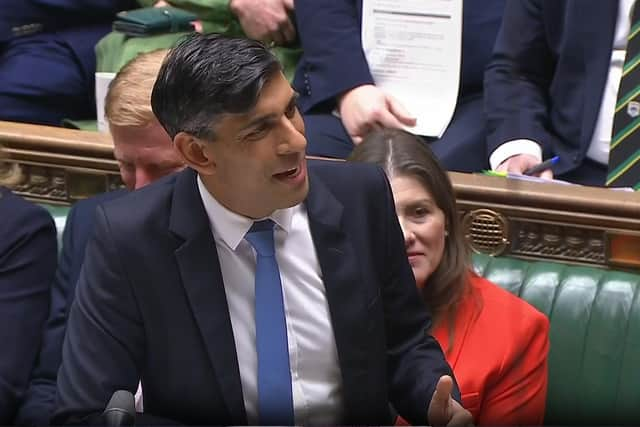Yemen bombings: Why was Rishi Sunak able to bypass Westminster Parliament and House of Commons over UK strikes in Yemen?
Rishi Sunak approved military action last week against the Houthis – Iran-backed militants who support Hamas in the group’s war against Israel.
A rebel faction who occupy parts of Yemen, the Houthis have a curse against Jews in their charter, and reintroduced slavery.
Advertisement
Hide AdAdvertisement
Hide AdThey are now being targeted by the US and UK, following weeks of attacks against ships with a link to Tel Aviv, aiming to damage global trade by disrupting merchant vessels passing through the sea to the Suez Canal.


The action, which also enjoyed support from Australia, Bahrain, Canada and the Netherlands, was criticised by the Liberal Democrats, the SNP and Plaid Cymru for not seeking parliamentary approval.
However, he is under no obligation to do so. The right to deploy UK armed forces forms part of the Royal Prerogative, meaning it is a power the Prime Minister derives through the Crown rather than through Parliament.
In 2011, the Conservative-Liberal Democrat coalition cited the controversy over the Iraq war as a reason to give MPs the opportunity to debate armed conflict, except in emergency situations.
The promise, which was never made legislation, ultimately backfired, leading to MPs voting against military action in Syria in 2013, but in favour of strikes against Islamic State in Iraq in 2014 and in Syria in 2015. However, no formal power was ever given to Parliament over military interventions.


Perhaps bruised by the Syria vote, David Cameron, then prime minister, claimed in 2016 this was the right decision, in order to “retain the ability of this and future governments and the Armed Forces to protect the security and interests of the UK in circumstances that we cannot predict, and to avoid such decisions becoming subject to legal action”.
There is also precedent for ministers deciding on action without MPs. Theresa May’s Government did so in 2018 against Syrian government targets, while troops were also deployed by Britain in Mali in 2013 with zero debate.
Opposition MPs may dislike it, but there is no obligation on Mr Sunak to debate the issue, or give them a say.
Comments
Want to join the conversation? Please or to comment on this article.
